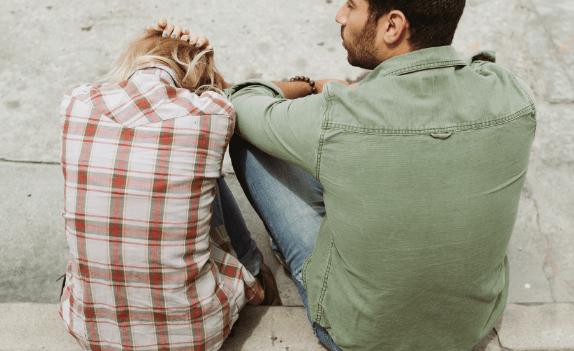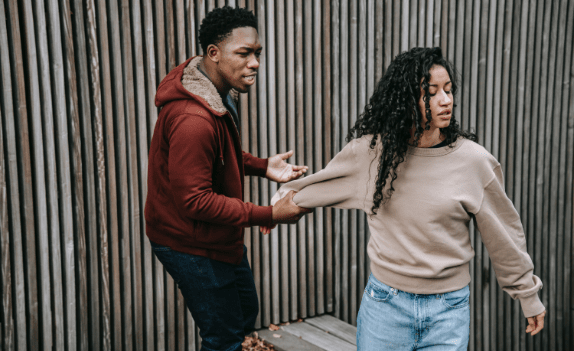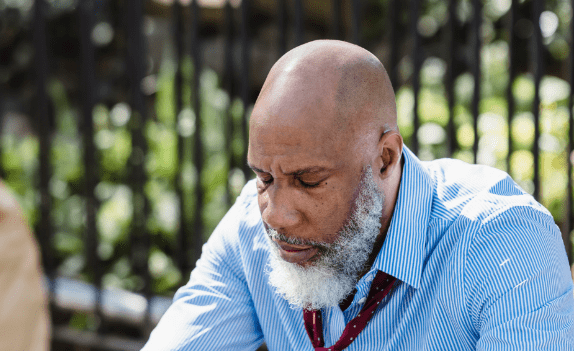Couples Substance Use Treatment
The challenges that most of us experience in our lives can impact our ability effectively communicate with our partners. The relationships we have with one another are what make us thrive as humans. They can also be one of the most challenging aspects in our lives. If we are also struggling with sobriety or seeking substance use treatment for couples, we can expect these difficulties to be magnified. Couples therapy in Queens NY at Rego Park Counseling can assist with relationships and couples substance use treatment simultaneously. Our compassionate, licensed therapists can help you find constructive and healthy strategies for managing challenges in your relationship together.

We also provide services for families, groups, the LGBTQ+ community, individuals, seniors, those with a dual diagnosis, people with anger control issues, individuals seeking remote telehealth services, and people seeking alternatives to incarceration.
Request A Call From Us
Addict Behavior in Relationships
Substance Use & Romantic Relationships
No matter our age, race, class, religion, or gender, people from all walks of life can suffer from substance use and mental health issues. Many people around the world have experienced the devastating effects that these two issues can have on a person, their families, and their relationships in general. A person’s emotions, mind, and body will go through internal struggles, while the people around them also suffer as they watch their loved ones deteriorate. As a result, these two factors put a strain on important relationships. Depending on how their addiction persists, it may lead to bigger problems such as changes in cognitive function, their mood, and even their physical appearance. Never be afraid to seek help when you know or suspect that your loved one is going through substance use and mental illness.


How Substance Use Affects Intimate Relationships
We all know that relationships and substance use are never a good mix. Being with a partner who uses drugs or drinks too much can have a ripple effect — affecting all those close to them, including you. Some argue that the biggest price is paid by their partner through some form of use, whether physical, mental, or emotional. However, in cases where both parties are substance users, they will both suffer from each other, and the effects are usually divided into two categories: psychological and economic. Typically, money becomes diverted from your investments and used to fund a mutual habit. This most commonly results in emotional neglect, mood swings, a lack of commitment towards each other, and decreased sexual desire.
What Are the Consequences of Substance Use?
Drug addiction spells disaster for relationships and can have tangible consequences, usually involving money. As mentioned above, a drug user can become so addicted to the substances they’re using that they will neglect their responsibilities. As a result, this person will use money that’s meant for bills and their family’s needs to support their need for drugs or alcohol, leading to financial strain.
There are also intangible consequences related to substance use, such as secrecy and unhappiness. Couples where one partner uses alcohol or drugs are reported to be very unhappy. As the drug use or drinking becomes worse, it will take more and more time away from their partner, causing emotional strain and distance. These couples report that they also argue and fight a lot, and it’s this fighting that creates an environment that encourages one or both people to resort to substances as an escape from stress.
Moreover, if your partner drinks alcohol or uses drugs excessively, they may keep it a secret at first. Feelings of shame, guilt, or fear of judgment may make them feel that others won’t understand or support them through their situation, and as a result, they’ll turn to secrecy. These are just some things that they might lie about:
- Where they are
- Who they spend time with
- Their day’s events
- Why they have been behaving differently
- Why there is missing money
Secrecy can have a huge impact on a relationship — and can escalate until the user is in complete isolation, where they distance themselves from all they love. This creates an immense gap in any relationship, romantic or otherwise, and can ruin connections between families, friends, and coworkers.
Lastly, other consequences include issues pertaining to health and violence. Oftentimes, anger and violence are closely linked to substance use since frustrations are running high. Aggression also emerges as a result of substance use, and as a result, arguments can quickly become dangerous situations. If you experience substance use and domestic violence in your relationship, it’s important to contact a domestic violence hotline and get help.
“Navigating relationships while facing life’s challenges, including substance use, can be overwhelming. We empower couples to rebuild connection and resilience, discovering healthier ways to thrive together through compassionate, tailored therapy.”
– Rego Park Counseling

How Substance Use Affects a Relationship Between a Non-addict and a Substance User
When a drug user focuses on getting and keeping their supply more than anything else, they will neglect their relationship. Apart from the financial strain this creates, the user will also resort to deception and create issues mentioned above. Furthermore, the relationship will also suffer from anger issues since drugs such as cocaine, methamphetamine, steroids, and alcohol can amplify any existing anger management issues. The user may also get frustrated with him or herself due to various factors involved with trying to quit their substance use. This, in turn, will cause more grief, anger, and lower self-esteem. The process can quickly become an endless cycle of going back to abusing substances to the point where the relationship can no longer be repaired.
Drug Treatment for Couples
Putting an end to their substance use is the best way to help the addicted individual. Attending therapy is the first step into repairing a broken relationship, where both partners should be present. While it may be difficult at first, psychotherapy and addiction couples substance use counseling will allow your loved one to better understand how the use of substances impacts their physical, mental, and social health. In addition, our loved ones will also be provided with coping mechanisms to develop healthy interpersonal skills and avoid substance use.

How Do Partners Enable Each Other?
There are ways partners can enable each other, which can make an already terrible situation worse. If you live with a substance user, pay attention to the ways you might be enabling them (whether consciously or unconsciously). Here are a few enabler mannerisms to watch for:
- Making excuses for your loved one
- Taking responsibility for their actions
- Working to reduce their consequences
- Accepting blame for their issues
Unfortunately, enabling is a flawed attempt at trying to help our addicted loved ones and will often result in more problems than solutions. One of the most obvious ways to enable someone is to provide money for our loved one, enabling them to spend it on drugs or alcohol. For instance, you might give them money for groceries or gas, even though you know they will not use it for those purposes. Sadly, the line between enabling and helping is extremely hard to discern for those who love someone struggling with addiction.
What Underlying Issues Create Tension in the Relationship?
Various issues not related to drug use can create or worsen the tension in an already strained relationship.
This refers to over-the-top behaviors or extreme reactions. You might feel like you need to walk on eggshells to prevent them from acting unpredictably.
While this is a common experience in any relationship, it’s unhealthy to see that your partner feels threatened by your other relationships.
This can take the form of abusive name-calling or rude remarks that make you feel bad about yourself.
If your partner tries to take control of your actions, decisions, or emotions, then he/she may be trying to manipulate you.
If your partner makes you feel like you are always at fault for everything in your relationship, this is their way of guilt tripping you.
Any two-faced behavior, such as cheating or lying, are examples of betrayal.
Couples Therapy
While our loved one gets treatment, partners can also benefit from therapy in many ways, such as:
- Understanding their role when it comes to patterns and struggles in the relationship
- Getting the right information and education when it comes to addiction and substance use
- Addressing their own self-care and mental health needs, both related and unrelated to addiction
Family and couples counseling can prove helpful to both the user and the non-user. Through counselling, everyone can learn and practice the skills needed to encourage a better relationship through healthier ways of interacting with one another. Moreover, couples can also attend support group meetings to help them keep a healthy relationship — you can do this together or in separate environments to help address your individual issues.
Dual Diagnosis
Sometimes, substance use can occur with mental health problems and can happen due to a number of reasons:
- Certain drugs may cause people who suffer from addiction to experience symptoms of a mental health issue
- Mental health issues may lead to drug or alcohol use as a form of self-medication
- Mental health issues and substance use may share underlying issues, which include genetic vulnerabilities, early exposure to stress or trauma, and changes in brain composition
A dual diagnosis is harder to treat in most cases, as the substance user is also likely suffering from one of the following disorders:
- Schizophrenia
- Depression
- Personality Disorders
- Anxiety Disorders
In the U.S., more than one in four adults live with both substance use and a serious mental health issue. Additionally, the National Survey on Drug Use and Health (NSDUH) estimates that more than 45% of people with an addiction also suffer from a co-occurring mental health disorder.
If you’re ready to take the first step towards recovery from addiction and create a happier and healthier environment at home, start your couples therapy session with us at Rego Park Counseling today. We are dedicated to helping patients get the most out of their recovery experience. We provide treatment programs that include a mix of individual therapy, couples therapy, and family therapy to address all our patients’ needs. Contact our outpatient clinic today and see the difference we can make for you and your family.
